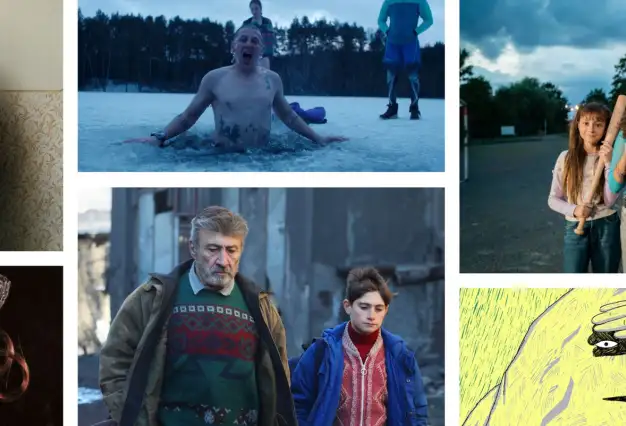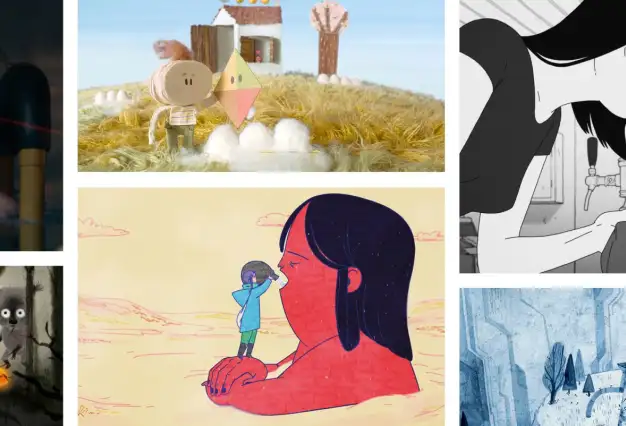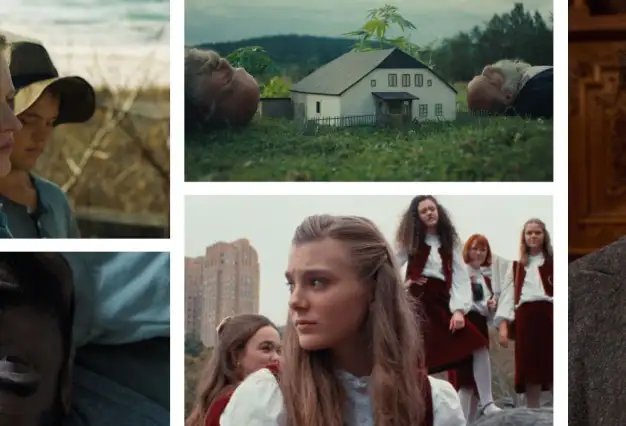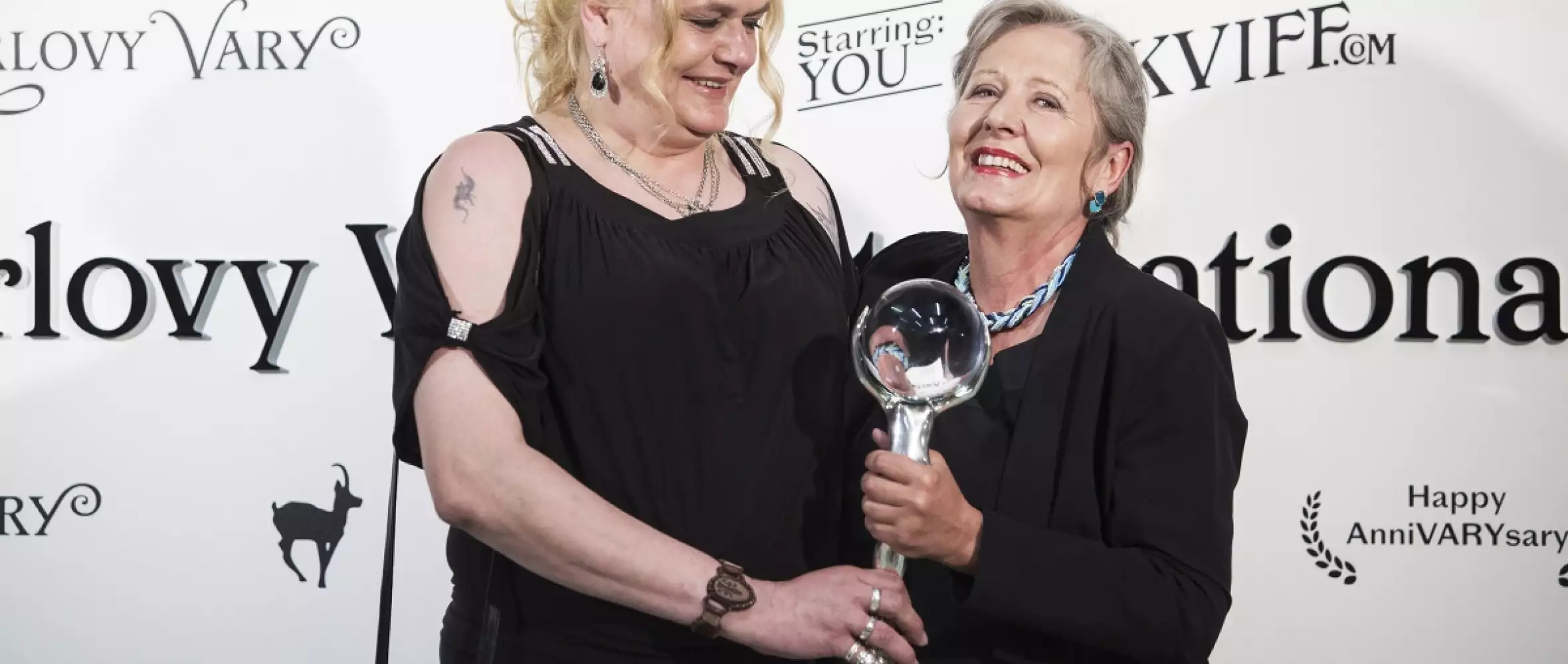
02 October 2018
The Simple Truths of Helena Třeštíková
The Simple Truths of Helena Třeštíková

Documentary director Helena Třeštíková (b. 1949) has been one of the best-known names in Czech culture for over three decades, and is widely respected abroad. Now she has been invited to be the guest of honor at the International Documentary Film Festival Amsterdam, where seven of her most famous and important works will be screened: Katka (2009), René (2008), Private Universe (2011), Mallory (2015), A Marriage Story (2017), Doomed Beauty (2016), and her debut, Miracle (1975). In addition, Třeštíková will present her Top 10, the ten works that most influenced her as a filmmaker, introducing them to the IDFA audience.
Article by Martin Svoboda for Czech Film Magazine / Fall 2018
Třeštíková’s invitation to IDFA is a well-deserved honor. Given the uniqueness of her methods, we can’t claim that she is representative of Czech cinema as a whole. The director herself has said that she considers her contribution to be “just a small part of the environment,” but her impact on Czech culture is undeniable.
Most recently, this influence was evident in Lukáš Kokeš and Klára Tasovská’s Nothing like Before (2017), the Czech entry in last year’s IDFA. Like many of Třeštíková’s films, albeit within a shorter time span, Nothing like Before takes an empathetic view on its everyday heroes. Other Czech documentarists have chosen to distance themselves from Třeštíková, opting for a more satirical or political perspective. One example of this is Vít Klusák’s The White World According to Daliborek (2017), which also follows a common man but shows him little empathy. In general, Klusák’s work can be viewed as a counterforce to Třeštíková’s kinder, gentler approach.
Observer of Ordinary Life
Ask a Czech to name five filmmakers, and odds are Třeštíková will be one of them. Her personal charisma, as well as the movies themselves, have won her an audience across the social spectrum, a rare phenomenon in this country. Respected by professors and factory workers alike, she stands tall as one of the few unifying elements within the Czech public sphere.
Třeštíková’s films, which usually observe ordinary families and their everyday troubles, have the ability to pull viewers in and allow them to live a different life for an hour and a half. Her patience and willingness to spend years with people, almost at random, in the hope the result will be worth it, are matched by few other filmmakers in today’s world. She is also extremely lucky: what Richard Linklater achieved in Childhood, his tender celebration of the passage of time, Třeštíková has done over and over again in her documentaries. In particular, her lifework, the TV series Marriage Stories, in which she follows several newly married couples for 35 years (over three waves of shooting, aired in 1987, 2006, and 2018), is a masterpiece that has succeeded in captivating audiences even beyond the Czech borders.
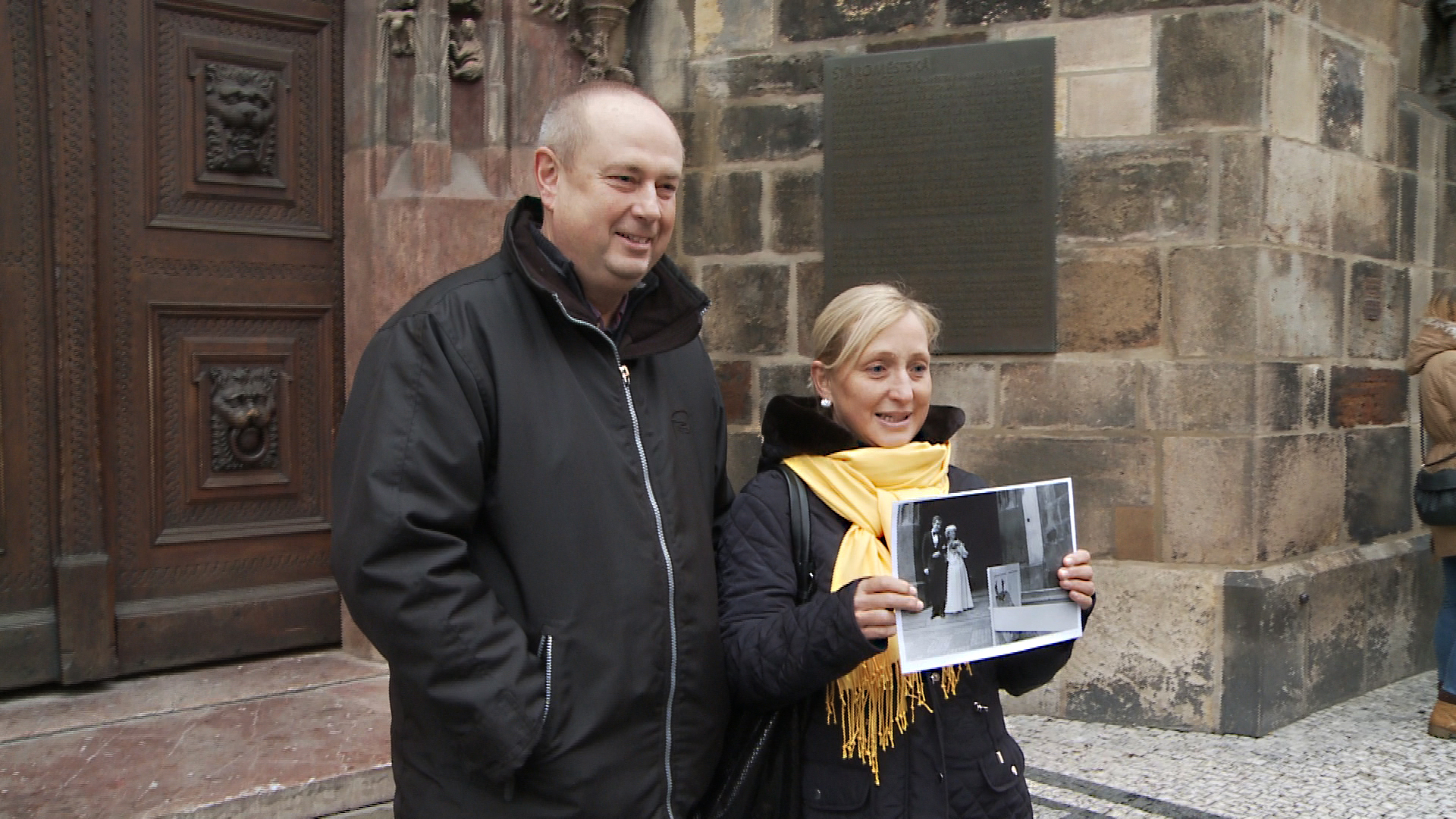
Třeštíková has a special gift for finding the universal in her subjects and their life dramas — perhaps because they are not “heroes,” living a life of extremes, but people who are just about as “normal” as you can get. Thanks to Třeštíková (and her knack for finding capable editors; lately she has been working with Jakub Hejna), we can find great unsensational excitement in these “adventures of the ordinary,” as she calls them. No divorce is simple; no parent-child relationship is smooth. And even when she does follow someone living outside the middle class mainstream, as in her portrait of the recidivist René (which won her a European Film Award in 2008), she manages to make him more human, not less — as reality TV would.
Helena Třeštíková’s Top 10
Looking at the list of works Třeštíková deems most important to her, we see her artistic preferences quite clearly. Miloš Forman’s The Firemen’s Ball (1967) is a film with “the most mundane characters, which became an allegory for society as a whole,” as she puts it. She says she hopes her observations capture the essence of society, even without direct commentary. Another work Třeštíková singles out is Farrebique, or The Four Seasons (1946), by Georges Rouquier, which observes a family of peasants over the course of a year. “The ordinary life of ordinary people fascinates me,” she says. And Something Different (1963), by Věra Chytilová, was a “lightning bolt” for the 14-year-old Třeštíková, a movie balancing between documentary and fiction, telling its story through authenticity. “The first time I saw it, I wrote in my diary that I wanted to be a filmmaker. A dream that felt so distant I couldn’t even say it out loud.”
But her dream came true when she began her studies at the FAMU film school in Prague, in 1969. “I went straight to the archive and began watching all the world’s most important documentaries,” she remembers. Again, the pattern of her interest is clear: The Seine Meets Paris (1957, dir. Joris ivens), The Savage Eye (1960, dir. Ben Maddow, Sidney Meyers, Joseph Strick). Later works she cites are Prague: The Restless Heart of Europe (1984, dir. Věra Chytilová), Citizen Havel (2007, dir. Pavel Koutecký and Miroslav Janek), and, after the fall of the Iron Curtain, once “we could finally breathe,” Up Series (1964), First Love (1974, dir. Krzysztof Kieslowski), and 66 Seasons (2006, dir. Peter Kerekes). These are the works Třeštíková names as influences throughout her career, and they all have one thing in common: they center on “tiny everyday life.”
Open to Criticism
Třeštíková isn’t one to shy away from criticism; in fact she is the first to acknowledge the problematic aspects of her work. She often recalls that although she won a national prize and a critic’s award for Katka (2009), the story of a young girl losing her life to drugs, there was also a pushback from progressives who claimed she was abusing her privileged position by exploiting ordinary people. She also noted that she has been criticized for not being willing to take the last step in revealing her subjects’ inner demons and for never openly challenging the social system.
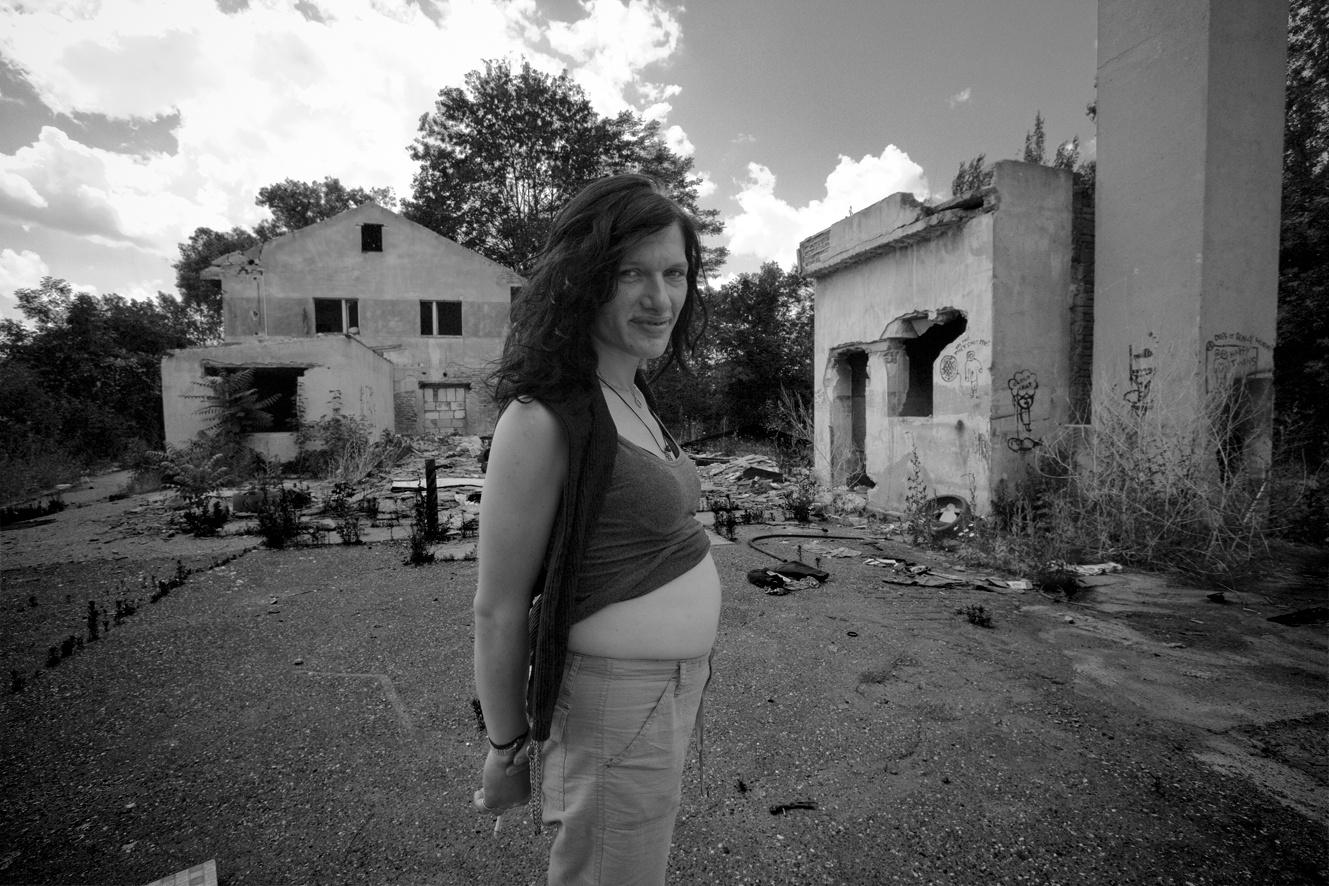
However, reading the course notes for her students at FAMU, or any of the multitudes of interviews she has given, it is obvious Třeštíková is well aware of the moral and ethical issues she faces as a director of her caliber. She developed her method based on her own moral compass, and is willing to take responsibility for the decisions she has made. This may explain how she was able to master her specific mode of documentary-making in a way that makes it seem nearly effortless. Perhaps, too, this is why we have the luxury of debating the meaning of her work without thinking too much about the process behind it. Which is not to be taken for granted. Too often we forget that her approach is in fact a logistical nightmare.
First, there is the difficulty of funding a production that won’t be completed until years, if not decades, after it has begun. Třeštíková started out her career, like every filmmaker of her generation, in the centrally managed film industry of Communist Czechoslovakia, slowly building confidence in her goals over time. To start with, of course, these goals were considerably less ambitious. Initially, she planned to spend far less time on Marriage Stories (the first series was shot in 1987, the last was completed in 2018), with the first wave of shooting the only one. But the audience reaction was so positive that Třeštíková remained committed to long-term observation for the rest of her career — even after the revolution of 1989, when the market economy made this type of project more onerous financially.
Thankfully, Třeštíková kept in touch with Czech Television (the public broadcaster) and, later, the Czech Film Fund, allowing her to find a way to keep the camera rolling. For over 10 years now, she has collaborated with the production company Negativ (Pavel Strnad and Kateřina Černá), who are behind her latest films, Marcela (2006), René (2008), Katka (2009), Mallory (2015, winner of Best Documentary at Karlovy Vary), and her latest work, A Marriage Story (2018).
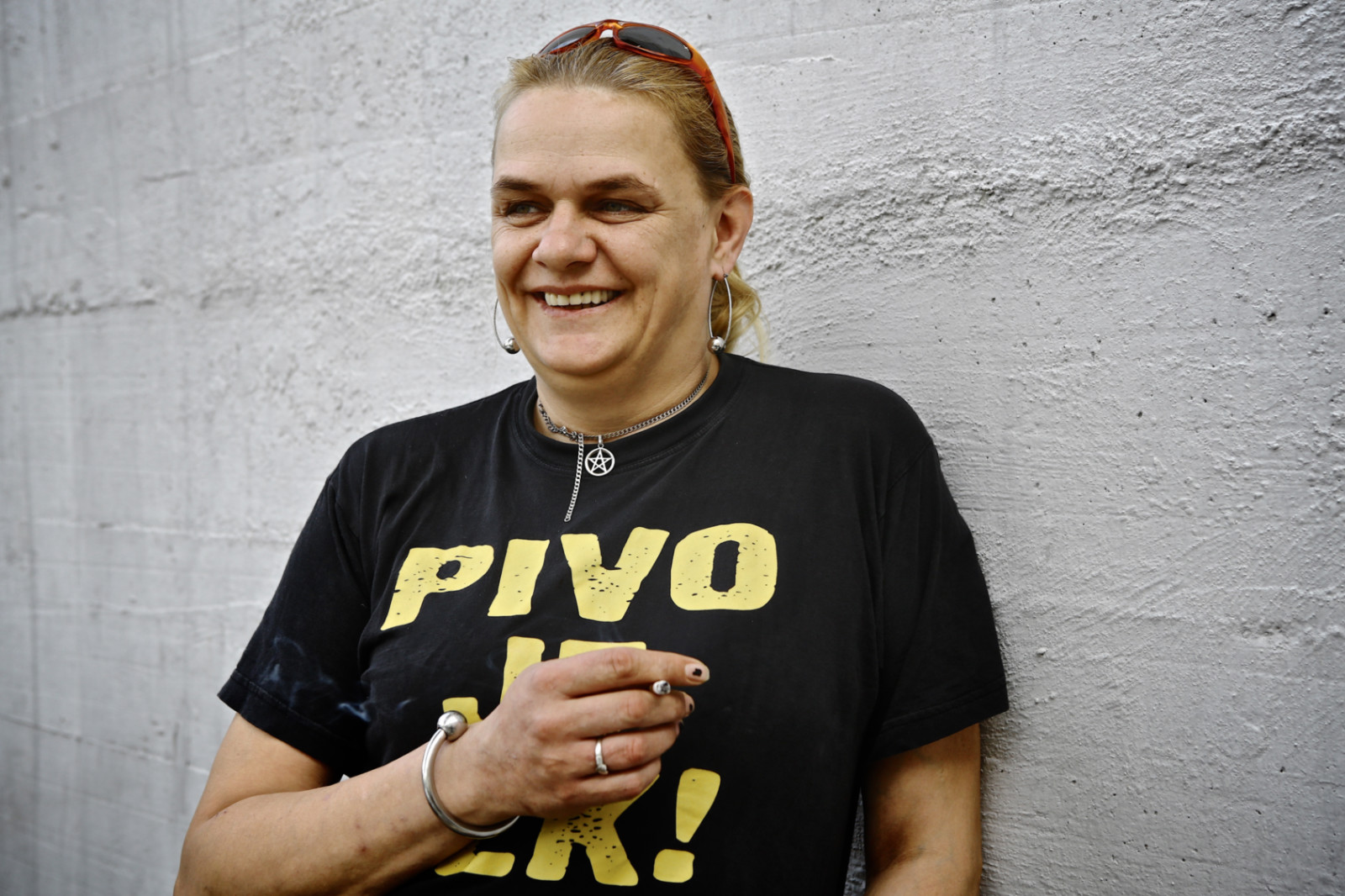
As an established director, it may be easier to raise funding, but there are still a host of other variables at play. For starters, it isn’t always easy to stay in touch with the people whose lives she’s documenting. In Marriage Stories, if a couple gets divorced, one of the partners may be unwilling to continue the project. That is still a manageable situation. But where Třeštíková is following only one person, portraying harsh truths while remaining on good terms with them can be like walking on eggshells. This is where it matters that Třeštíková seems to genuinely care about “her people,” establishing a bond of trust through her empathy and unusually strong charisma. But she also truly does understand and care. The fact that these people are willing to open up their lives to millions of moviegoers through the lens of Třeštíková's camera, for sometimes more than a quarter of a century, is telling.
More Than Just Heartwarming
Třeštíková is deeply attached to her work. At the Ji.hlava International Documentary Film Festival, she stayed for discussions with the audience after all six sold-out three-hour marathon screenings of Marriage Stories. And this was after sitting through the screenings — which goes a long way to explaining why she is cherished by so many. Not only does her work warm the heart, however; it also brings to light changes in the world as they are taking place (an especially valuable service in such turbulent times), raising every question that documentary films can raise about authorship and ethics.
In our first encounter with Třeštíková’s work, the concept itself is usually the main fascination. To witness the human condition evolving before our eyes is pure cinematic magic. In retrospect, we appreciate the nuances of her approach, detecting the subtler details — sometimes in agreement, sometimes with an editorial comment. Either way, there is no denying the riveting pull of the works by this filmmaker who has devoted her life to looking for the little truths in everyday life.


